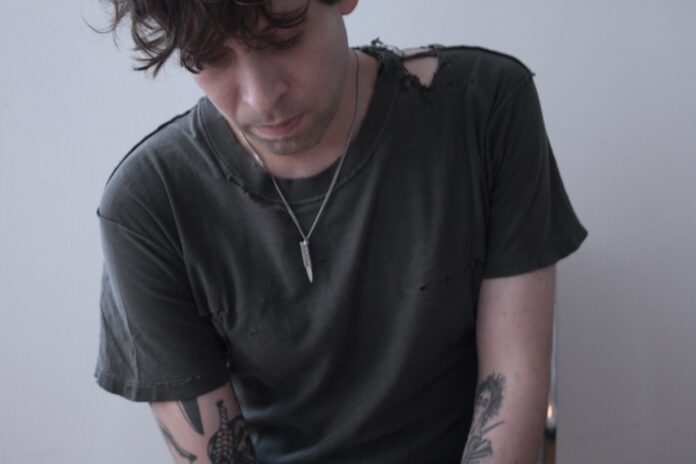I saw Luis Vasquez’s Bay-born post-punk darkwave project The Soft Moon so many times in the early 2010s that I’ve gone through three commemorative concert t-shirts, with the last one barely holding on—a sacred, threadbare relic that every true rock fan has a few of in the back of their closet, only to be worn on very special occasions. I pulled it out when I heard he was tragically found dead in LA this weekend with another of my favorite musicians from this century, dark synth-techno DJ and producer Silent Servant, aka Juan Mendez, and his incredibly cool wife Simone Ling. It’s too soon for me to wear it.
Both musicians revived the synth/goth/industrial spirit I grew up on in the ’80s for another time and crowd, adding their own contemporary touches that only young people with every piece of musical information available to them could. Their music cut through the blingy, snarky bullshit of the Internet 2000s by reconnecting with the ambiguous, inchoate emotions everyone still felt beneath that era’s tacky, conformist veneer of proto-Instagram poses, rictic emojis, and online “friends.” (It hasn’t quite left us yet. Save us, antisocial Gen Z!)
They also came at an exciting time for local indie and dance music (Luis lived in Oakland then, Mendez in LA but played here often), when it was getting slightly more diverse—Luis was of Mexican-Cuban decent, Juan was Guatemalan—opening up to weirder sounds and gaining a stronger foothold in the world. They were extremely successful by their genre’s standards: The post-Millennial darkwave/cold wave movement ushered in by figures like Minimal Wave’s Veronica Vasicka and Dark Entries’ Josh Cheon, both of whom revered Vasquez and Mendez, is now a respectably established category/channel/stream.
After he left underground psych-rock collective Lumerians, Luis’ killer first official Soft Moon releases, with their Man Ray meets Maholy-Nagy covers, opened the door to a full musical career both wonderful (living in Italy, opening for Depeche Mode) and terrible—Luis was robbed at gunpoint in Oakland in 2012, losing two years of tracks on his laptop, and then in 2016 his tour van was robbed of all live equipment, also in Oakland. A reminder that our leaders have not solved these problems for a long time; they didn’t just pop up with the latest wave of suburbanites, and they hurt struggling artists, too.
But he kept on making music and touring, although he did move out of the area. In 2022, he emerged from the pandemic for a homecoming concert, which was quite a big deal.
While I never knew either Luis or Juan much beyond introduction (I was actually intimidated, tbh, although by all accounts they were very sweet), I did the traditional gothic dances of my ancestral underground Detroit club peoples many, many times to their performances, and knowing they were on a line-up at a festival or mega-party made it seem that much more homespun and intimate. I knew I could always head to their stage to reset my party buttons with some gorgeously angsty ballast.
I don’t know what to say about the suppositions that the trio died of accidental fentanyl overdose, other than that fentanyl is a society-wide problem, not just affecting the unhoused, and we are losing so many people like we did in the ’90s to black tar heroin, the 2000s to meth, and depression and serious health issues throughout. I’m torn between respecting privacy as a fan and wanting to speak openly as a journalist. What I do know is that shaming and imprisoning people won’t solve the issue of bad drugs in the mainstream: People do drugs, it’s fine and often fun. We desperately need a compassionate society and accessible health care system that focuses on harm reduction, testing, non-carceral treatment, regulation, and honesty over moralizing.
I hope their passing is mourned through their great art and friendships, and inspires others to change the world. Listen to them.






